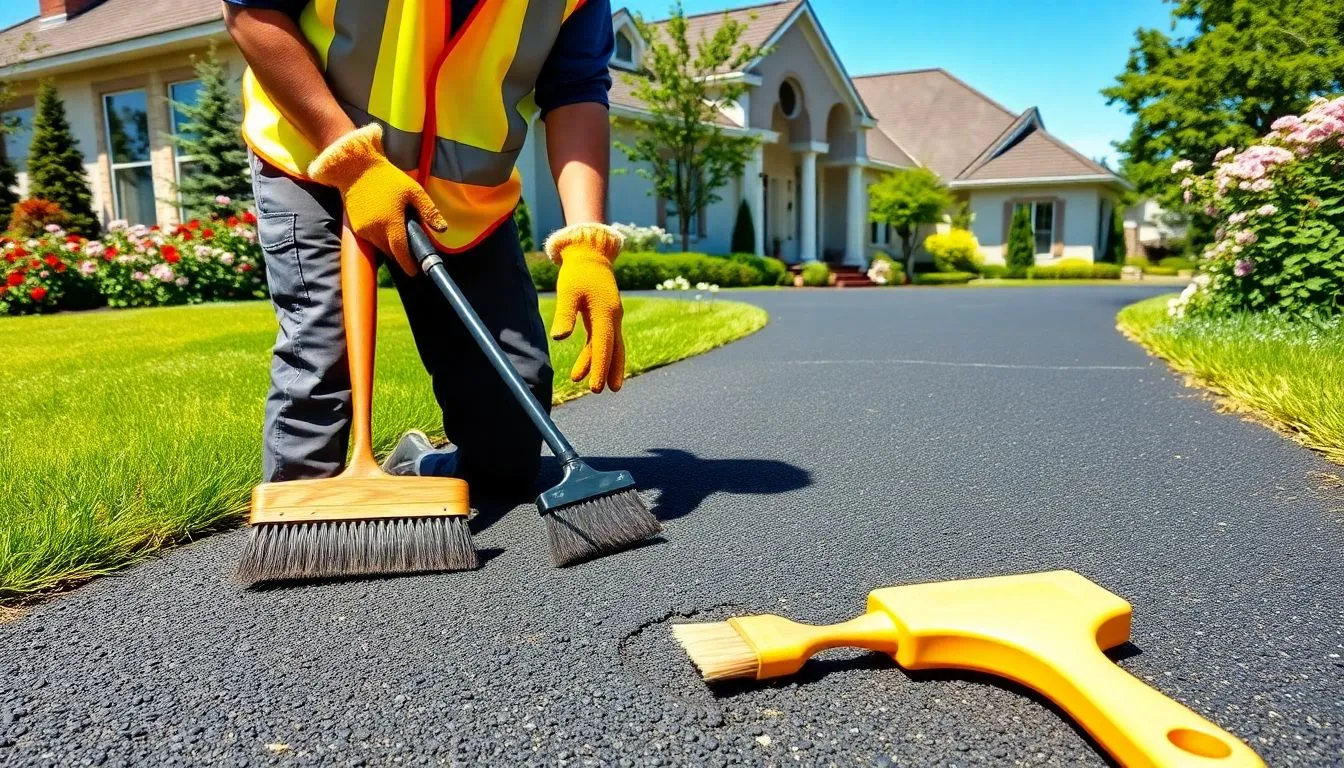Why Driveway Maintenance Matters
Maintaining your asphalt driveway is not just about appearance — it’s essential for durability, safety, and long-term savings. Without consistent care, small cracks evolve into potholes, water weakens the foundation, and your property’s curb appeal declines.
Routine maintenance boosts longevity and reduces future repair costs. Whether you live in a cold climate like Canada or a hot one like parts of the U.S., preventive care is your first line of defense.
Understanding the Basics of Asphalt Driveways
What Is Asphalt and How Does It Work?
Asphalt is made of crushed stone, sand, and bitumen (a petroleum-based binder). It’s designed to flex with temperature changes, making it ideal for fluctuating climates. However, constant exposure to UV rays, moisture, and heavy traffic wears it down over time.
Common Causes of Asphalt Damage
-
Water penetration into cracks
-
UV radiation breaks down surface oils
-
Freeze-thaw cycles in winter regions like the UK or Canada
-
Heavy vehicle traffic, especially near the edges
Regular Inspection & Preventive Maintenance
Monthly Visual Inspections
Use a flashlight to detect hairline cracks and look for pooling water or oil spots. Early intervention prevents larger issues.
Seasonal Maintenance Tips
-
Spring: Sweep away winter debris and inspect for salt damage.
-
Summer: Avoid parking on hot asphalt — it softens.
-
Fall: Clear leaves to prevent staining and moisture retention.
-
Winter: Use non-corrosive de-icers to avoid surface damage.
Pro Tip: Cracks smaller than ¼ inch should still be sealed immediately to prevent widening.
Crack Repair & Pothole Prevention
Identify the Crack Type
-
Alligator cracks: Indicate base failure
-
Edge cracks: Caused by poor drainage or traffic stress
-
Longitudinal cracks: Due to shrinkage or temperature swings
-
Block cracks: Typically from aging asphalt
DIY Crack Filling
-
Clean the crack with a wire brush or air blower
-
Use a quality crack filler product
-
Smooth using a squeegee and let it cure fully
Pothole Repair
-
Use cold-mix asphalt for small fixes
-
Tamp it down with a hand tool
-
For recurring or large potholes, hire a professional contractor
Sealcoating: Lifespan Booster & Surface Shield
Why Sealcoat?
-
Protects against UV damage
-
Prevents moisture intrusion
-
Improves appearance
-
Extends the surface life by up to 10 years
When & How to Sealcoat
-
Every 2–3 years
-
Ideal conditions: dry weather (spring or fall)
-
Avoid application during rain, freezing temperatures, or extreme heat
Use our Sealcoating Calculator to estimate product quantity and cost.
Common Mistakes to Avoid
-
Sealing over dirt or uncleaned cracks
-
Applying during poor weather
-
Skipping drying time
Drainage & Surface Management
Slope Matters
Ensure your driveway has a 2% slope away from your home. This prevents water from pooling, which can lead to base erosion and freeze-thaw damage.
Debris Clearing & Drain Management
-
Regularly clear leaves, snow, and dirt
-
Unclog gutters and nearby drains
-
Avoid letting water sit on the asphalt for long
Protecting Driveway Edges
-
Avoid parking heavy vehicles on driveway edges
-
Use landscaping to shield the sides from erosion
-
Install borders or concrete edges for added support
Long-Term Maintenance & Professional Support
When to Call in a Pro
-
You notice deep cracks, uneven surfaces, or water intrusion
-
Previous DIY repairs are failing
-
You’re unsure about proper drainage or slope
Pro Services Include:
-
Infrared crack sealing
-
Full-depth patching
-
Driveway resurfacing or overlays
Compare costs using the Driveway Resurfacing Calculator.
DIY vs Professional: What’s Worth Doing Yourself?
| Task | DIY Friendly | Pro Recommended |
|---|---|---|
| Crack sealing (under ¼”) | ✅ Yes | ❌ No |
| Pothole patch (small area) | ✅ Yes | ❌ No |
| Full resurfacing | ❌ No | ✅ Yes |
| Drainage/slope correction | ❌ No | ✅ Yes |
✅ Maintain Smarter, Not Harder
Get instant estimates and material suggestions using our free asphalt calculators — trusted by contractors and homeowners across the U.S., UK, Canada, and Japan.
🔍 FAQ
Q1. How often should I inspect my asphalt driveway?
Once a month is ideal. Look for surface damage, water spots, and debris.
Q2. Is sealcoating necessary for all driveways?
Yes — it’s one of the most effective ways to extend surface life and maintain appearance.
Q3. Can I do crack repairs myself?
Absolutely. For cracks under ¼”, use cold or hot crack filler and a basic toolkit.
Q4. What causes driveway potholes?
Freeze-thaw cycles and water seepage into unsealed cracks are the primary causes.
Q5. When should I hire a professional?
For large cracks, drainage issues, or full resurfacing, hire a licensed contractor.

